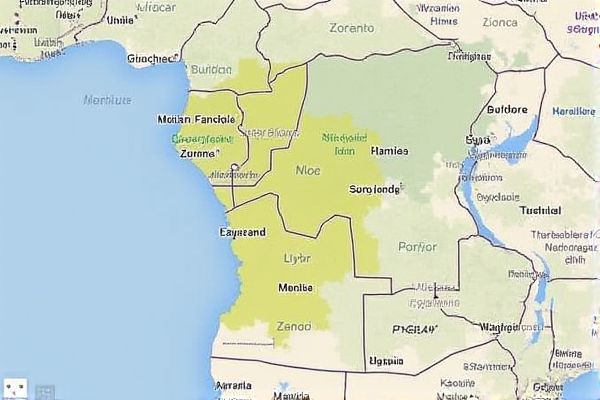
Zambia offers a growing number of job opportunities in Geographic Information Systems (GIS), reflecting the country's increasing focus on technology and data-driven decision-making. Organizations in sectors such as agriculture, urban planning, environmental management, and mining are actively seeking GIS specialists to enhance their operations through spatial analysis and mapping capabilities. Positions often require skills in software like ArcGIS, QGIS, and proficiency in data collection techniques, including remote sensing and GPS technology. Professionals in this field can explore roles as GIS analysts, cartographers, and geospatial data scientists, contributing to sustainable development and resource management initiatives in Zambia.
Job Description
GIS jobs in Zambia typically involve managing spatial data to support various sectors, including agriculture, urban planning, and environmental management. Analysts often work with geographic information systems to create maps, analyze data, and inform decision-making processes. Familiarity with software such as ArcGIS or QGIS is essential, along with strong analytical skills and attention to detail. Opportunities are available in both public and private sectors, contributing to national development and resource management in Zambia.
Requirement
GIS jobs in Zambia typically require a strong educational background in geography, environmental science, or related fields, often with a bachelor's degree as a minimum. Proficiency in GIS software such as ArcGIS or QGIS is essential, along with skills in data analysis and cartography. Experience with field data collection and an understanding of local geographic and environmental issues can greatly enhance your candidacy. Employers may also value strong communication skills to effectively convey GIS findings to diverse stakeholders.
Salary and Perks Expected
GIS jobs in Zambia typically offer salaries ranging from ZMW 10,000 to ZMW 25,000 per month, depending on experience and specific roles. Benefits often include health insurance, transportation allowances, and opportunities for further training or professional development in geographic information systems. The demand for GIS professionals is growing in various sectors, such as agriculture, mining, and urban planning, which can lead to career advancement and job stability. Understanding the local job market can help you negotiate effectively for the salary and perks that reflect your qualifications and contributions.
Similar Job Names
- GIS Technician
- GIS Analyst
- GIS Developer
- GIS Project Manager
- Remote Sensing Specialist
- Cartographer
- Spatial Data Scientist
- Geospatial Data Engineer
- Environmental Consultant
- Urban Planner
- Surveying Technician
- Land Information Officer
- Geospatial Intelligence Analyst
- Geographic Information Systems Coordinator
- Mapping Specialist
Job Expectation Concept
The job expectations for Geographic Information Systems (GIS) positions in Zambia center around technical proficiency in GIS software and data management tools. Employers often seek candidates with a strong understanding of spatial analysis, cartography, and remote sensing, as these skills are crucial for effective project execution. Communication skills are equally important, as professionals must present findings and collaborate with various stakeholders, including government agencies and NGOs. Staying updated with local and regional geographic trends can enhance your competitiveness in the evolving job market.
Career Advantage and Weakness
GIS jobs in Zambia offer significant career advantages, including a growing demand for spatial data analysis in sectors such as agriculture, mining, and urban planning. Your skills in GIS can lead to opportunities with both government and private organizations, enhancing job security and professional growth. However, the sector also faces challenges, including limited access to advanced technology and training resources, which may hinder skill development. Networking and gaining practical experience can help you overcome these weaknesses and stay competitive in the job market.
Important Thing Must Know
GIS jobs in Zambia are increasingly relevant due to the country's focus on sustainable development and natural resource management. Various sectors, including agriculture, mining, and urban planning, utilize Geographic Information Systems to enhance decision-making processes. Employers often seek candidates with a solid foundation in GIS software, database management, and spatial analysis. Gaining experience through internships or projects can significantly improve your employability in this competitive field. Networking within professional communities and attending industry conferences can also open up valuable job opportunities in Zambia's GIS landscape.
Alternative Career Options
GIS professionals in Zambia can explore various alternative career options beyond traditional roles. Opportunities in the agricultural sector involve leveraging GIS technologies for precision farming and land management, enhancing crop yields and efficiency. Local governments often seek GIS specialists for urban planning, environmental assessment, and infrastructure development, contributing to sustainable community growth. With the rise of renewable energy projects in Zambia, GIS expertise is increasingly in demand for site analysis and environmental impact assessments, opening doors for innovative career paths in this growing field.
Companies List
- Zambian National Water Supply and Sanitation Council
- Zambia Electricity Supply Corporation (ZESCO)
- Ministry of Lands and Natural Resources
- Zambia Mining Environmental Management Committee
- World Vision Zambia
- GIZ (Deutsche Gesellschaft fur Internationale Zusammenarbeit)
- African Development Bank (AfDB)
- National Museums Board of Zambia
- Conservation Farming Unit
- Zambia Environmental Management Agency
List of Ideal City
Lusaka, the capital city of Zambia, offers a thriving environment for GIS professionals with numerous government agencies and private companies actively seeking GIS expertise. Livingstone, known for its tourism industry, also presents opportunities in spatial analysis for environmental management and conservation projects. Kitwe and Ndola, two significant cities in the Copperbelt region, have emerging industries that require GIS services to support mining and urban planning. Engaging with local networks and participating in industry events can significantly enhance your job prospects in these cities.
 zambia-jobs.com
zambia-jobs.com